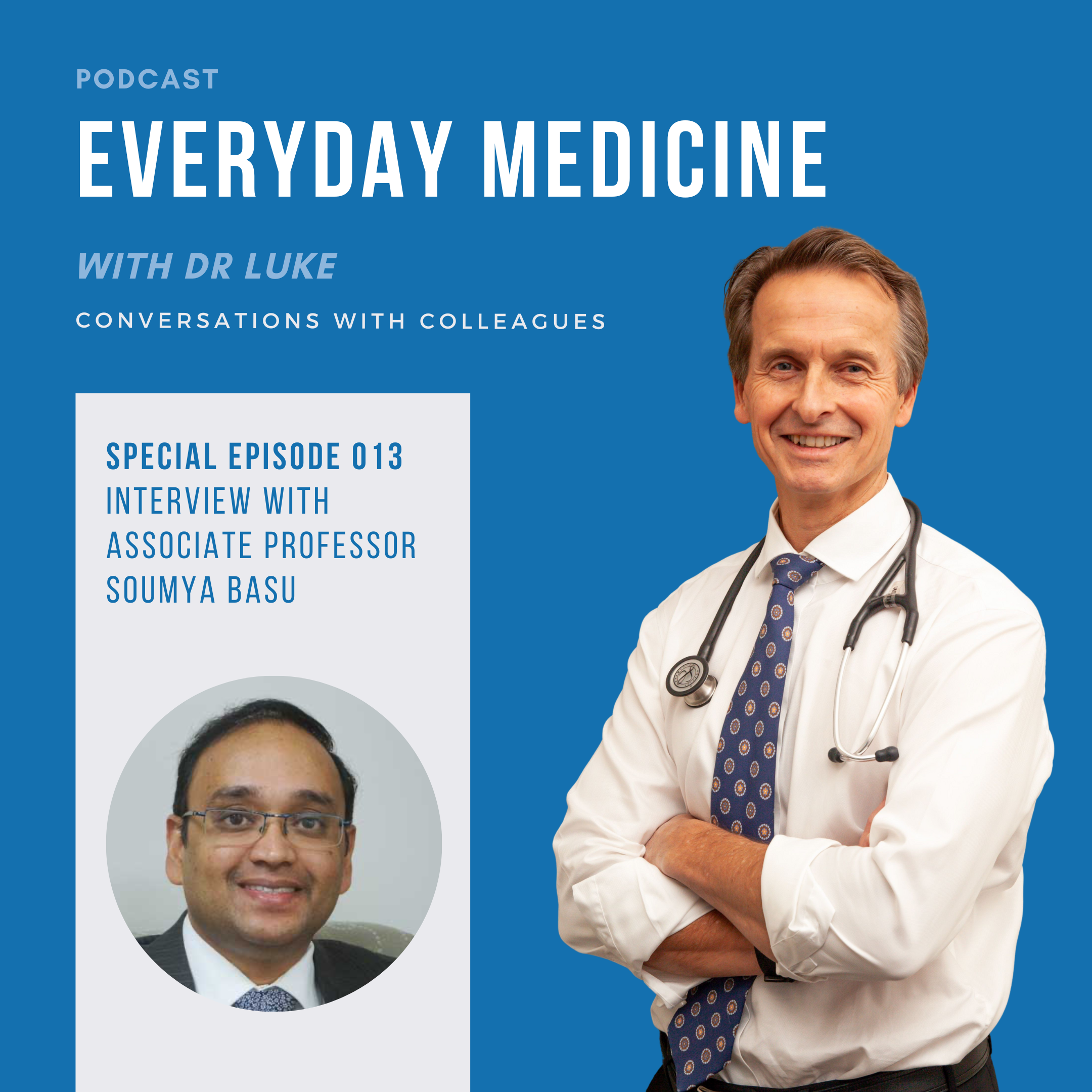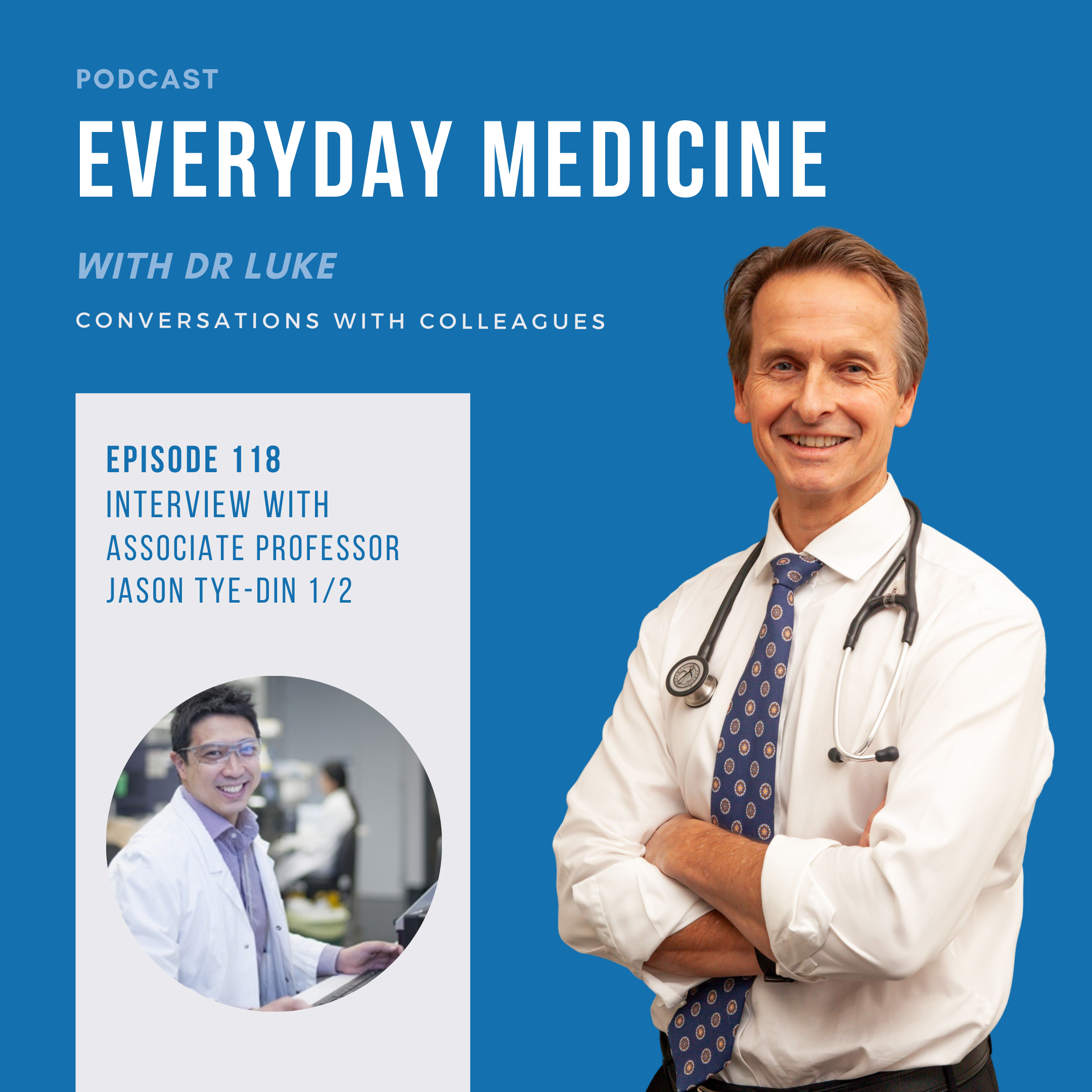Everyday Medicine by Dr Luke Crantock
Conversations with colleagues providing helpful ideas and advice in healthcare
Episode 124. Lipids and Atherosclerotic Cardiovascular Disease with Dr Brett Forge (Part 3/3)
Lipids are essential for cell function and healthy metabolism however clinical analysis of a patient’s lipid profile also addresses one of the fundamental drivers of atherosclerotic cardiovascular disease responsible for 25 % of all deaths in Australia. Modification of abnormal serum lipid levels by lifestyle and pharmacologic intervention aims to achieve a healthy coronary circulation reducing new atheroma formation and stabilizing preexisting atheromatous plaques.
Episode 112. Sweet Poison: Why Sugar Makes Us Fat with David Gillespie
Sweet poison was first published in 2008 and is probably more relevant now than when David first wrote it. The book contains a great deal of well-researched information and would be a good recommendation to patients eager to learn how a relatively simple dietary choice may turn around emerging health issues.
Episode 111. Stereotactic radiotherapy and the Abscopal Effect with Dr Marcus Foo
In an earlier episode, we reviewed the principles of radiation therapy from a general perspective. This field of medicine unifies the management of cancer, by harnessing the therapeutic benefits of radiation, utilising ionising radiation. A specific form of this treatment is stereotactic radiotherapy, which administers radiotherapy from different angles around the body, with the focus of ionisation meeting at the targeted tumour to be treated. This allows the focussed delivery of high-dose radiation to the tumour, whilst nearby tissues receive a much lower and thus less damaging dose - lowering the risk of side effects.
Episode 110. Recurrent UTI with Dr Tony Amin
Urinary tract infections are one of the top twenty reasons patients present, for primary care. According to Kidney Health Australia, 1 in 2 women and 1 in 20 men will develop a urinary tract infection in their lifetime. Approximately 4 in 10 women who develop a UTI will have at least one more infection in the next 6 months. Furthermore, 4% of patients in residential care develop recurrent UTIs, which is defined as 3 infections in a 12-month period or 2 or more in a 6-month period (including cystitis and pyelonephritis).
Episode 109. Medicolegal matters - How to avoid them with Mr Rocky Ruperto
A patient approaching a doctor expects medical treatment with all the knowledge and skill that the doctor possesses, to bring relief to his or her medical problem. The relationship takes the shape of a contract. Equally, a doctor owes certain duties to his patient and a breach of any of these duties gives a cause of action for negligence against the doctor. As doctors, we have a duty to obtain prior informed consent from the patient, before carrying out diagnostic tests and therapeutic management. We also need to clearly document our conversations, investigations, and procedures. Communication, consent, and documentation are the big three issues that tend to permeate most medical claims.




















